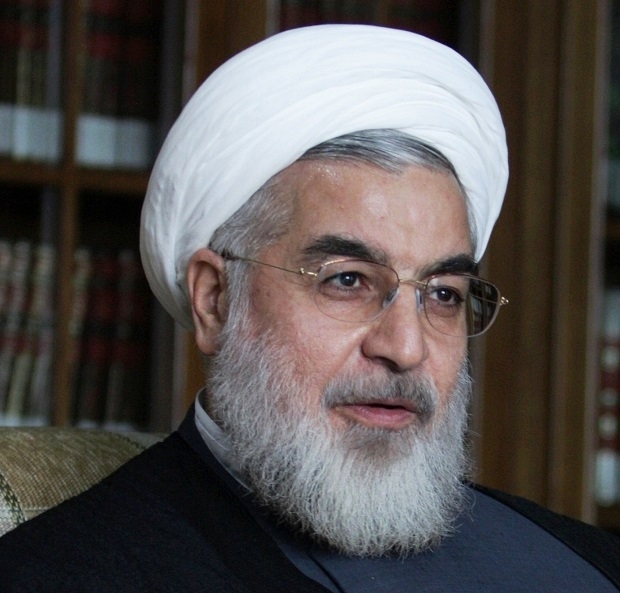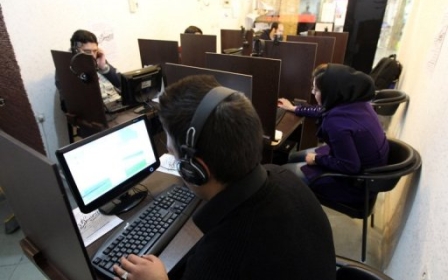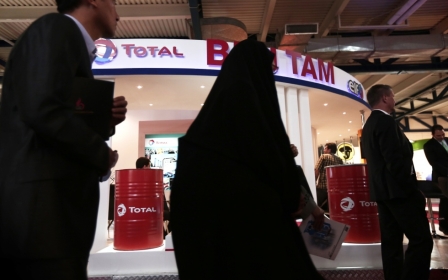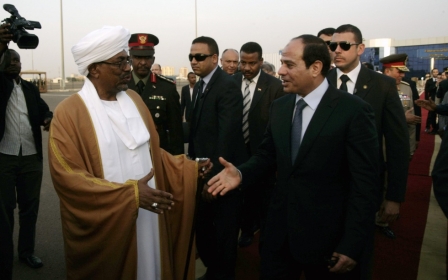Iran’s diplomatic leap of faith

It is no surprise that President Hassan Rouhani has lashed out at recent US economic sanctions on his country. In addition to continuing the previous sanctions, a new list of individuals, corporations and foundations have been added to the blacklist. US Treasury officials claim that companies based in Turkey, Thailand and the United Arab Emirates have served as front companies, working on nuclear and missile programmes, as well as supporting terrorism.
Closer to the west
Rouhani’s much welcome ascent to the presidency came with the token of Iran moving closer to moderation and improving relations with its neighbours and the west. There was much hype after Obama and Rouhani exchanged talks, last year in September, over a phone call, making it the first time the presidents of the two countries talked since the 1979 Iranian revolution. The call, which congratulated Rouhani on his victory in the elections, still focused overwhelmingly on the nuclear issue. It ended with Rouhani saying “Have a nice day” in English and Obama replying “Thank you” in Farsi. To make things more pleasant, Rouhani returned to Iran after being present at New York’s United Nation’s general assembly with an ancient Persian artefact that was in the US since 2003. The US returned it as a gesture of goodwill.
In fact, Rouhani was certainly earning positive points in the west over re-tweeting Maryam Mirzakhani’s photos with and without the headscarf. The Iranian mathematician was the first woman to win the prestigious Fields Medal in mathematics. Perhaps inordinately, the tweet was hailed as marking a “new era for women rights” in Iran. Rouhani also engaged in dialogue with Twitter’s chairman Jack Dorsey, promising that he will try to improve Iran’s internet freedom. Iran currently blocks access to various websites, including Twitter, Facebook and Youtube.
Another turning point for western-Iranian relations, though in this case more substantial, is the visit to Iran in March this year of European Union (EU) foreign policy chief Catherine Ashton. She conveyed a message of goodwill and hope for future cooperation between Iran and the EU’s 28 states. For the first time talks were about non-nuclear issues, and noting the importance of Iran in the Middle East.
Furthermore, in April this year, the US has taken steps to release Iranian frozen funds worth $US450 million, following a positive report by the International Atomic Energy Agency on Iran’s compliance with the P5+1 (the five permanent members of the UN security council: US, Russia, China, UK, France plus Germany).
Rouhani’s slogans are “moderation and wisdom”, but this simply was not enough to charm the US out of sanctions. The sanctions, Rouhani said, were “a very ugly move” and “in conflict with the spirit of the talks”. The overall direction of Iranian-western diplomacy seemed to be progressing smoothly, until the new sanctions. However this is normal for any country with rising power and influence. The US and EU has similar disagreements with China or Russia, as it does with Iran. However, on the global scale, these countries are both important players and relations cannot be completely severed because of mutual interests. Similarly, but on a regional level, Iran has certainly come to be vital for any settlement in the Middle East, as it is involved in several conflicts. Without an understanding or agreement with Iran, stability cannot simply be achieved. Moreover, Iran is able to bypass sanctions, as Rouhani has stated in a news conference condemning the sanctions: “Of course we bypass sanctions. We are proud that we bypass sanctions because the sanctions are illegal.”
Iran conducts business with Russia and China accounting for billions worth of trade. Turkey has gold worth about $US10 billion in Iran in exchange for gas. Trade in Dubai was heavily curbed by sanctions, but Oman has been a mediator between Iran and others (US and the Gulf Cooperation Council, GCC), and has recently signed a great deal of agreements in bilateral investments (topping $US10 billion) and cultural cooperation. The highlight of Rouhani’s visit to Oman in March - a diplomatic victory for Iran in itself - was a pipeline to export gas from southern Iran to northern Oman. It is also worth mentioning that there are US companies benefiting from sanction exemptions and loopholes, such as Cargill, Archer Daniels Midland, Boeing and General Electric. Iran’s ability to bypass sanctions would make the west seek different policies to guarantee the goal of a nuclear-weapons-free Iran and, hence rapprochement. Furthermore, as mentioned earlier, Iran is a central player or fomenter of regional conflicts.
Opportunity and influence
Iran is involved in supporting the Iraqi government, militias in Iraq, and Syria, along with directly supporting Syrian President Bashar al-Assad, who would not last without Iran. It is also a major player in Lebanon and it has been accused of meddling and inciting sectarianism in Bahrain. It’s also influencing the situation in Yemen, as Houthis raise Hezbollah flags and pictures of its leader Hassan Nasrallah in their protests. Houthis that are expelling Yemenis from their land and are involved in ongoing clashes will be a major source of distress for the region, especially countries of the GCC.
Much now is being anticipated in relations between Iran and Saudi. The two countries have signalled a willingness to improve their relations. The deputy foreign minister of Iran was just in Saudi at the end of August. Nothing much has been released on the details of the visit, but it paves the way for higher representation meetings in the future.
Saudi Arabia should have been alarmed by the US response to the Ukraine crisis which did not guarantee its security. This may explain why Saudi has been more assertive in its security policy. Saudi has conducted large-scale military drills in April - the largest in its history. It is arming the Lebanese military with $US3 billion worth of French weapons (a course of action that was being worked on since December last year) and is clearly about to engage with its biggest rival in the region: Iran.
The threat of the Islamic State will be the easiest regional matter to agree on, and if the two are able to coordinate counter-insurgency efforts, the prospect of further cooperation will certainly be higher. On the other hand, there are plenty of matters and conflicts that worry Saudi Arabia and very likely will be the subjects of discussions and possibly negotiations. If the two are able to reach some understanding, it will certainly alleviate the severity of conflicts in the region. However this is all obscure and one should not get ahead of the future.
Regardless of the sanctions, overall, Iran is making diplomatic leaps. Iran and the P5+1 are still committed to the negotiations on the nuclear matter. So far, the global and regional arenas for Iran have plenty of opportunities, and Iran doesn’t seem to be wasting any.
Mustafa Salama is a political analyst, consultant and freelance writer. Salama has extensive experience and an academic background in Middle East Affairs. Salama holds a Bachelors and Masters degrees in Political Science from the American University in Cairo.
The views expressed in this article belong to the author and do not necessarily reflect the editorial policy of Middle East Eye.
New MEE newsletter: Jerusalem Dispatch
Sign up to get the latest insights and analysis on Israel-Palestine, alongside Turkey Unpacked and other MEE newsletters
Middle East Eye delivers independent and unrivalled coverage and analysis of the Middle East, North Africa and beyond. To learn more about republishing this content and the associated fees, please fill out this form. More about MEE can be found here.





